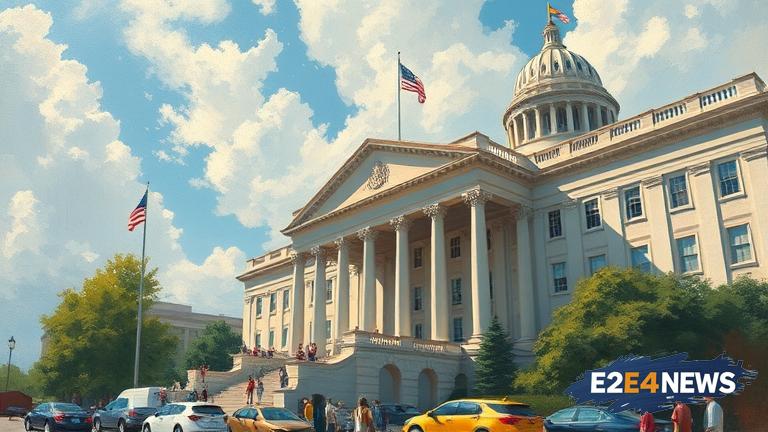The proposed healthcare bill, dubbed the ‘Big Beautiful Bill’, has sparked intense controversy and debate among lawmakers and healthcare experts. The bill, which aims to overhaul the current healthcare system, could potentially strip health care from 10 million Americans, leaving them without access to essential medical services. Furthermore, the bill is estimated to add a staggering $3.4 trillion to the national deficit, a figure that has raised concerns among fiscal conservatives. The bill’s proponents argue that it will reduce healthcare costs and increase efficiency, but critics argue that it will have devastating consequences for vulnerable populations, including the elderly, low-income families, and those with pre-existing conditions. The bill’s impact on the healthcare industry is also a major concern, with many hospitals and healthcare providers warning that it could lead to widespread job losses and facility closures. The American Medical Association has come out strongly against the bill, citing concerns about its potential to disrupt the healthcare system and leave millions without access to care. The bill’s authors, however, claim that it will increase competition and drive down costs, making healthcare more affordable for all Americans. Despite these claims, many experts remain skeptical, pointing out that the bill’s provisions are likely to benefit large corporations and insurance companies at the expense of ordinary citizens. The bill’s fate is uncertain, with many lawmakers expressing reservations about its potential impact. The Congressional Budget Office has estimated that the bill could lead to a significant increase in the number of uninsured Americans, a figure that is likely to rise if the bill becomes law. The bill’s supporters, however, argue that it is a necessary step towards reforming a broken healthcare system, and that the benefits will outweigh the costs. As the debate over the bill continues, many Americans are left wondering what the future of healthcare will look like, and whether they will be able to access the care they need. The bill’s impact on the economy is also a major concern, with many economists warning that it could lead to a significant increase in healthcare costs and a decrease in economic growth. The bill’s authors have promised to make adjustments and revisions to address these concerns, but it remains to be seen whether these changes will be enough to alleviate the fears of critics. In the meantime, the healthcare industry is bracing itself for the potential impact of the bill, with many providers and insurers warning that it could lead to widespread disruption and instability. The bill’s passage is far from certain, and it is likely to face significant opposition in the coming weeks and months. As the debate over the bill continues, one thing is clear: the future of healthcare in America is at a crossroads, and the consequences of this bill could be far-reaching and devastating.
